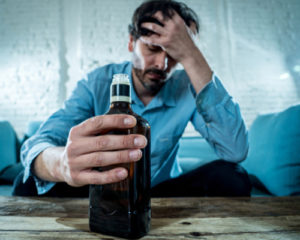Boston is a major seaport and large city in the northeastern United States. Both of those facts make it a target for the illicit drug trade and the opioid epidemic, which has had a serious impact on the region. However, as opioids draw a lot of the focus of public health efforts, alcohol continues to be a problem that frequently leads to substance use issues. Learn more about alcoholism in Boston and the need for drug and alcohol rehab in the area.
Boston Alcohol Rehab Statistics
Alcoholism is a common cause of substance use issues in the United States. According to a 2018 National Survey on Drug Use and Health, more than 86 percent of adults in the U.S. have tried alcohol in the past. More than 26 percent reported binge drinking in the past month, according to the survey. Binge drinking is drinking four or five beverages in a two-hour period. Binge drinking and long-term excessive drinking can lead to substance use disorders and chronic health issues.
A study in Massachusetts found that the state had higher-than-average drinking problems. In Boston, more than 22 percent of adults reported binge drinking. In the state, binge drinkers said they would drink an average of 6.5 drinks on any given occasion.
Binge drinking also raises your risk of alcohol poisoning and an alcohol-related accident. Those consequences, along with long-term health issues related to alcoholism, contribute to around 88,000 deaths in the U.S. each year.
Most Commonly Abused Substances in Boston

Alcohol can be dangerous on its own when used in excess, but it can be more dangerous when it’s mixed with other substances. Alcohol may be mixed with other illicit or prescription drugs by mistake or intentionally to increase the effects of recreational use. For instance, alcohol is sometimes mixed with stimulants to mask certain uncomfortable effects. However, it may also make users feel like they can take higher doses, which can lead to an overdose.
Alcohol can be more deadly when it’s mixed with depressant medications like benzodiazepines or opioids. Boston and other areas of the northeastern U.S. have been hit hard by the opioid epidemic. It’s common for opioids and alcohol to mix with dangerous effects. Together, the substances potentiate, which means they can both make the other more intense. Mixing depressants and opioids can increase the risk of respiratory depression and other deadly side effects.
Massachusetts Alcohol Rehab History and Rankings
In recent history, Massachusetts has had high alcohol poisoning rates. According to a U.S. Centers for Disease Control and Prevention study, 11.9 per 1 million people died of alcohol poisoning between 2010 and 2012.
Quick Treatment Facts
Alcoholism is a treatable but chronic substance use disorder or addiction. Without treatment, alcohol use problems can get worse over time, affecting multiple aspects of your life. Effective treatment will involve a multidisciplinary approach. Substance abuse and other underlying issues should be addressed through treatment.
When you first enter a treatment program, you’ll meet with medical and clinical professionals to help create a treatment plan that’s personalized to your needs
What Is Addiction? Retrieved from: https://www.psychiatry.org/patients-families/addiction/what-is-addiction
Data on Excessive Drinking. Retrieved from: https://www.cdc.gov/alcohol/data-stats.htm
CDC Finds Massachusetts Has High Alcohol Poisoning Death Rate – But Don’t Blame Students. Retrieved from: https://www.boston.com/news/local-news/2015/01/07/cdc-finds-massachusetts-has-high-alcohol-poisoning-death-rate-but-dont-blame-students
Alcohol Facts and Statistics. Retrieved from: https://www.niaaa.nih.gov/publications/brochures-and-fact-sheets/alcohol-facts-and-statistics
Treatment and Recovery. Retrieved from: https://www.drugabuse.gov/publications/drugs-brains-behavior-science-addiction/treatment-recovery

